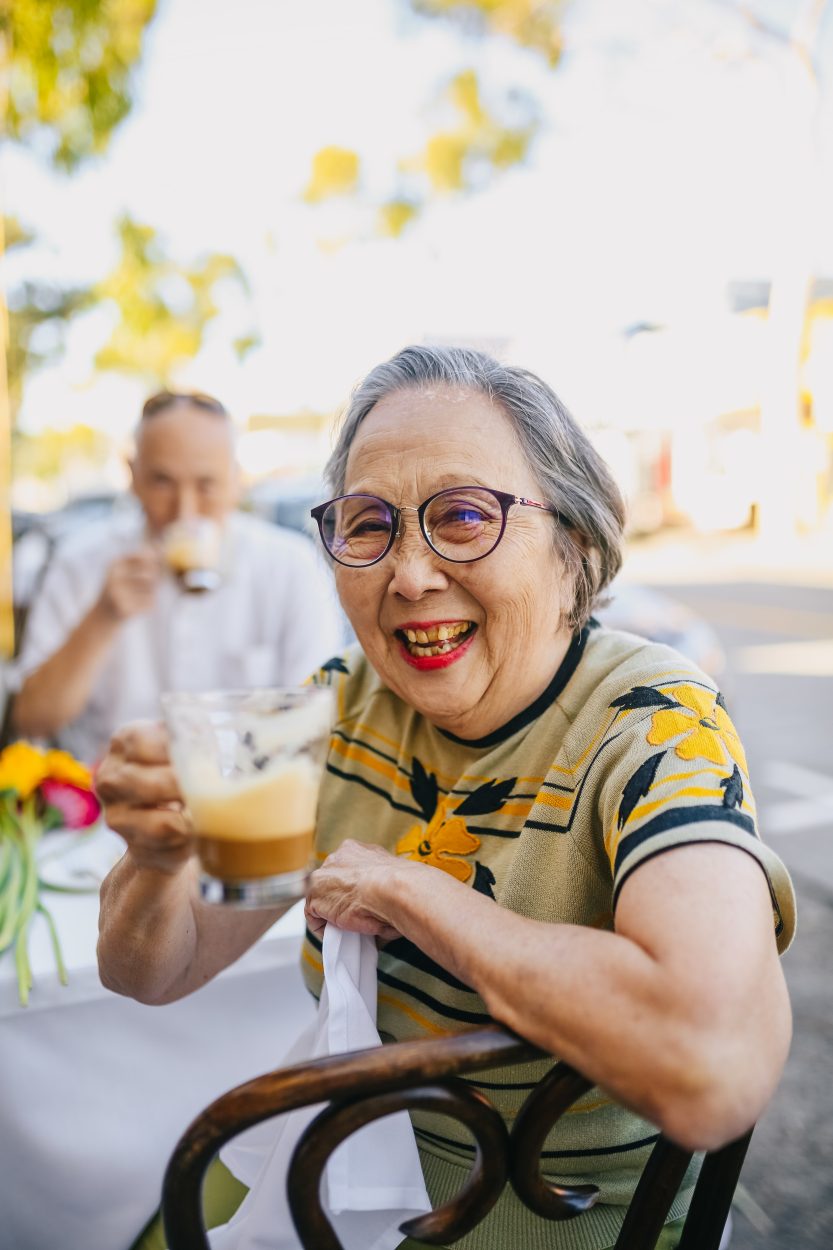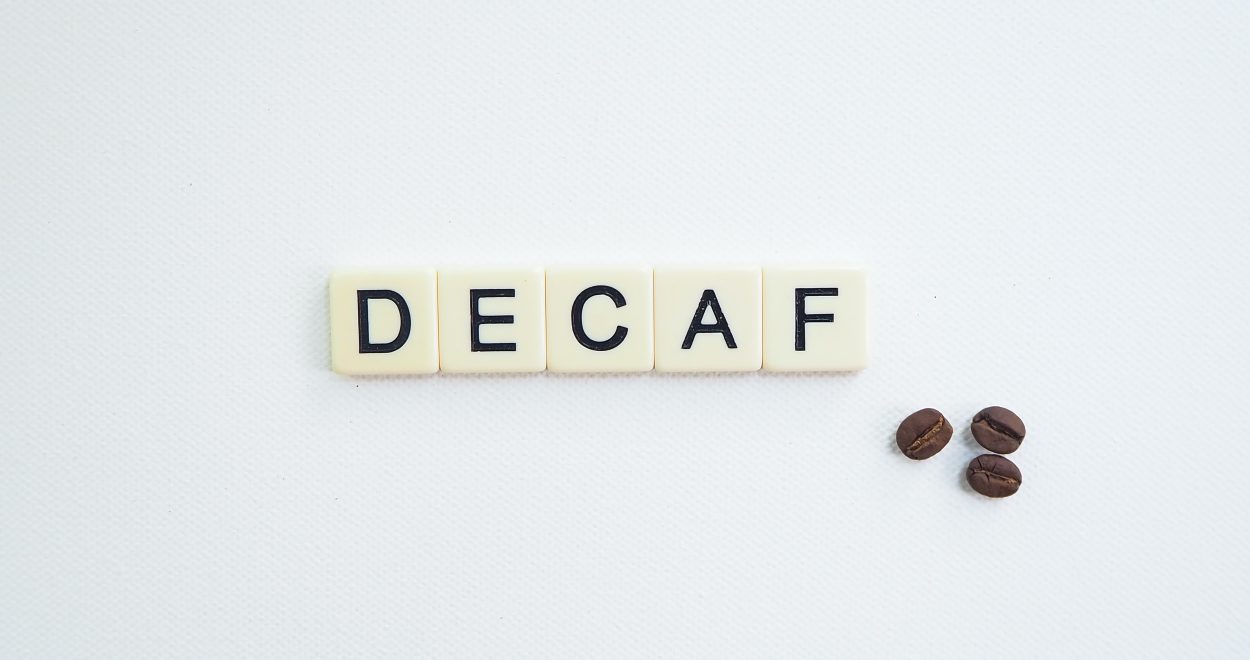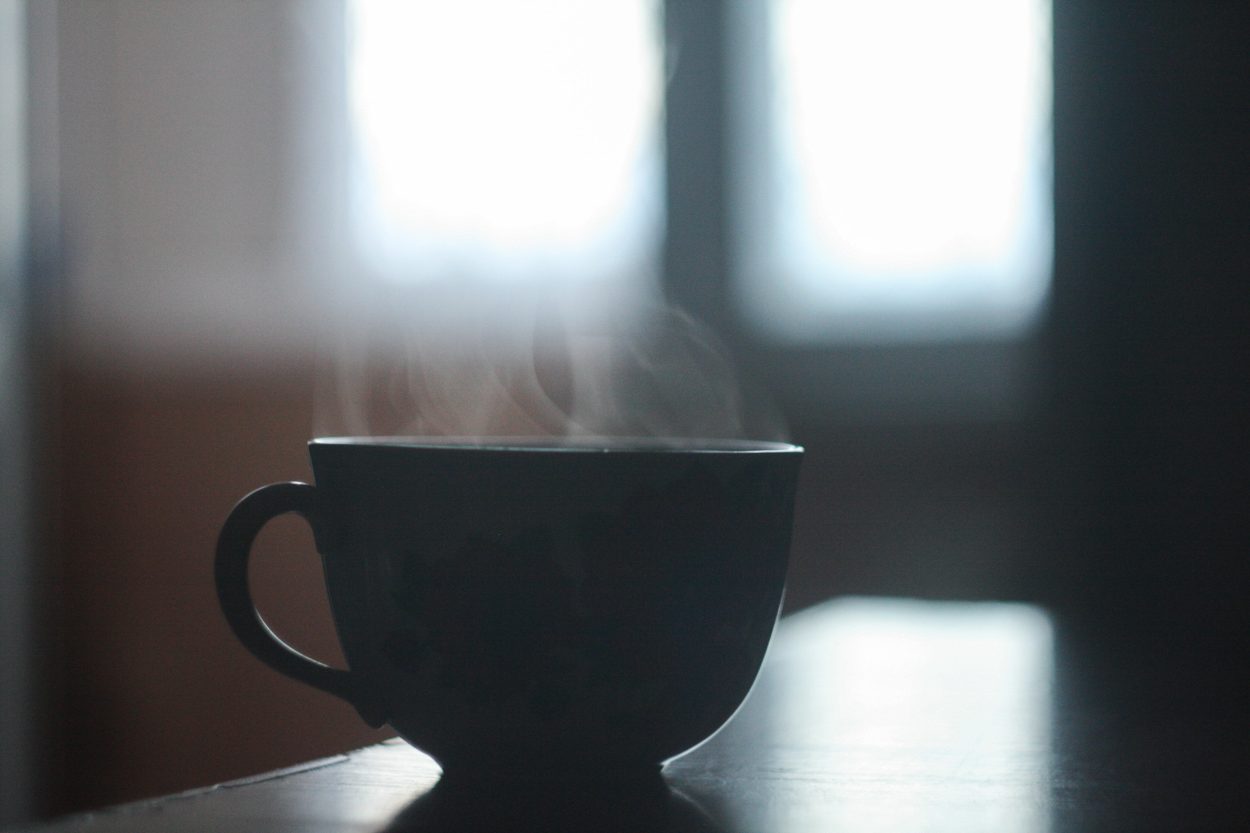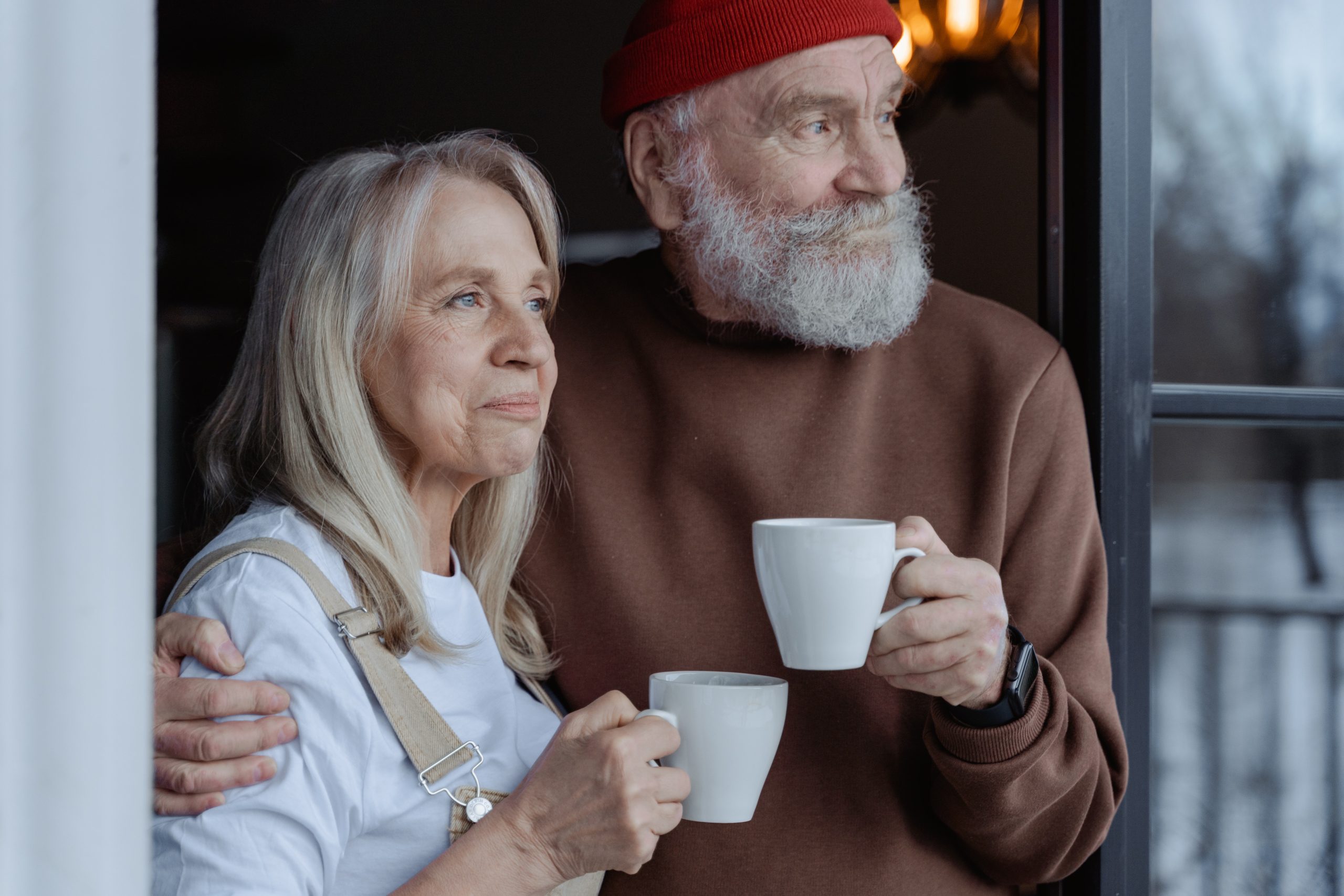Decaf coffee is best for elderly people. Old-age people love coffee. In fact, according to Statistica, elderly people drink more coffee than any other age group in America, with nearly three-quarters of the population aged 55 and older drinking at least one cup in a day.
While sipping on a few cups of coffee every day may have positive effects on energy, health, and mood levels, too much of it can cause problems with hydration, sleep, and existing health conditions.
Though the geriatric crowd can still enjoy their daily brew, managing their caffeine intake is essential to prevent unnecessary negative side effects on their health.
Do you know how much caffeine your senior parents can consume in a day? And which coffee is the best for them?
Read the article to know the effect of coffee on the elderly.
The Pros And Cons Of Drinking Coffee For Old Age People

The Upside Of Coffee
Many coffee lovers savor that first sip of their morning cup of joe that jolts the body to increase attentiveness. In addition to enhancing cognitive functions, coffee, when taken in moderation, can surprisingly lower the risk of many chronic ailments including type 2 diabetes, Parkinson’s disease, depression, and liver disease.
Coffee and Health, an association for scientific research on coffee, cites a study that reveals partaking of 3 – 4 cups of coffee daily – now that’s without cream and sugar of course – can reduce the risk of type 2 diabetes by as much as 25%.
The institution also reports studies that indicate coffee intake can reduce or delay the growth of Parkinson’s Disease. The American Parkinson Disease Association explained that it’s the caffeine and Eiconsanoyl-5-hydroxytryptamine elements of coffee that work together to control the biochemical changes that are linked with Parkinson’s Disease.
And the benefits of coffee don’t stop here. Based on the outcomes from a Cardiovascular Risk Factors, Aging and Dementia research, people who started consuming 3-5 cups of the hot drink daily at midlife reduced their risk of Alzheimer’s Disease and dementia by nearly 65% later in life.
These benefits are linked with the dark roast and not the caffeine in the coffee. Studies to determine the defensive effects of caffeine against dementia are ongoing.
Reduced chances of heart failure is another positive effect of moderate coffee consumption. People, including elders, who drink 1 to 4 cups of coffee daily are 19% less likely to die from cardiovascular disease.
Bad News About Coffee
While caffeine is safe for the geriatric if consumed at low levels, those who consume more than four cups of coffee in a day can experience headaches, anxiety, restlessness, and heart palpitations.
Excessive intake of caffeine can:
- Overstimulate the nervous system
- Elderly sleep issues
- Jitters
- An upset stomach
According to a study on the metabolic clearance of caffeine, older adults above the age of 65 take around 33% longer to metabolize caffeine than younger people, which means it stays in their nervous system for a longer period. So, if an old-aged person had a cup of coffee at 4 p.m., chances are their body might still be metabolizing it at 10 p.m., disrupting their essential night sleep.
Increased blood pressure and dehydration are also the side effects of consuming too much caffeine. Dehydration is one of the leading reasons for hospitalization among the elderly over 65 years of age. Sipping on coffee instead of water throughout the day when thirsty can cause dehydration.
Furthermore, coffee can adversely affect the stomach linings of seniors with gastritis and ulcers as it contributes to the production of stomach acid and stimulates gastric acid production.
Your amazing cup of joe can also potentially interfere with the potency of certain medications such as stereopsis drugs, thyroid medication, and antidepressants. It does this by reducing the absorption of the medicines into the body.
For instance, people who wash down their thyroid medication with coffee may reduce its absorption in the body by up to 55 percent. In some cases, coffee can also boost the stimulation of some specific drugs, further increasing heart rate and causing jitters.
You can watch the video to learn more about the pros and cons of coffee.
How Much Caffeine Can Old People Have?
The quota for daily caffeine intake is 400 mg for healthy adults, that’s roughly four cups of brewed java (this total doesn’t include caffeine derived from other sources).
Moderate amounts of coffee (around 50-100 mg of caffeine or 5-10 g of coffee powder in a day) are well tolerated by most elderly people. However, excessive amounts of coffee can cause very unpleasant, exceptionally even life-threatening side effects for old people.
Individuals exceeding that total limit of caffeine intake should cut back, switch to decaf, or do both. Loved ones and caregivers should keep a close eye over how much and when seniors consume coffee or other caffeinated drinks and foods.
Maintaining the recommended caffeine consumption is crucial to avoid those unwanted serious side effects and insomnia.
The following table contains the caffeine content in some commonly consumed products.
| Product | Size | Caffeine Content (mg) |
| Caffeine Tablet | 1 tablet | 200 |
| Coffee, roasted | 150 ml | 85 |
| Coffee, instant | 150 ml | 60 |
| Coffee, decaffeinated | 240 ml | 5 |
| Coffee, espresso | 57 ml | 100 |
| Chocolate, dark | 1 bar (43 grams) | 31 |
| Chocolate, milk | 1 bar (43 grams) | 10 |
| Hot chocolate, cup | 150 ml | 4 |
| Soft drink, Cola classic | 355 ml | 34 |
| Tea, green | 240 ml | 15 |
| Tea, leaf or bag | 240 ml | 30 |
Which Coffee Is Best For Old Age People?

Elderly people with a depleted enzymatic system find it difficult to tolerate coffee with caffeine. Thus, they are recommended to take decaffeinated coffee, and this too only if their stomach is healthy as both coffee with caffeine and decaffeinated coffee can cause heartburn.
Decaf usually gets a bad reputation, but it’s not completely the buzz-less drink’s fault. Many aging adults prefer decaf coffee over-caffeinated one– and for good reason.
Scientific reasons to be exact. Younger people are more capable of metabolizing caffeine quickly than older age adults. In a study conducted on people aged 65 – 70, it was seen that it took around 33 percent longer to metabolize caffeine in the older group compared to those who were younger.
Furthermore, caffeine can also counter effect certain medications of elderly people in some cases, or interfere with other health-based measures.
Therefore, it’s best to offer decaf to old-age people in varying ways to save them from the possible side effects that caffeine may bring to their health.
To know more about decaf coffee, take a look at my article where I discuss it in detail.
To Sum It All Up

Just like overindulging in alcohol or sweets, ignoring the risks related to caffeine would be careless for the health-conscious elderly people. Several studies have observed coffee’s impact on older people and indicated that consuming caffeine in moderate amounts can help avoid any side effects.
Apart from coffee, caffeine is also present in chocolate, tea, soda, and some specific medications. Caregivers should be cautious of any additional sources of caffeine in the diet of the seniors to avoid excessive ingestion of caffeine.
As I mentioned in the article, caffeine can also cause dehydration. And seniors are more vulnerable to fluctuations in the quantity of fluid in their body so dehydration can become a cause of lightheadedness – or even falling. To prevent dehydration, offer your seniors plenty of water to drink throughout the day. If they really need a cup of coffee, offer them decaf instead, as it has little to no caffeine.
However, caffeine is fine for most elderly people if taken in moderation. But for seniors with diabetes, osteoporosis, ulcers, or gastritis, the effects of caffeine may be more hazardous and not worth the risk.

